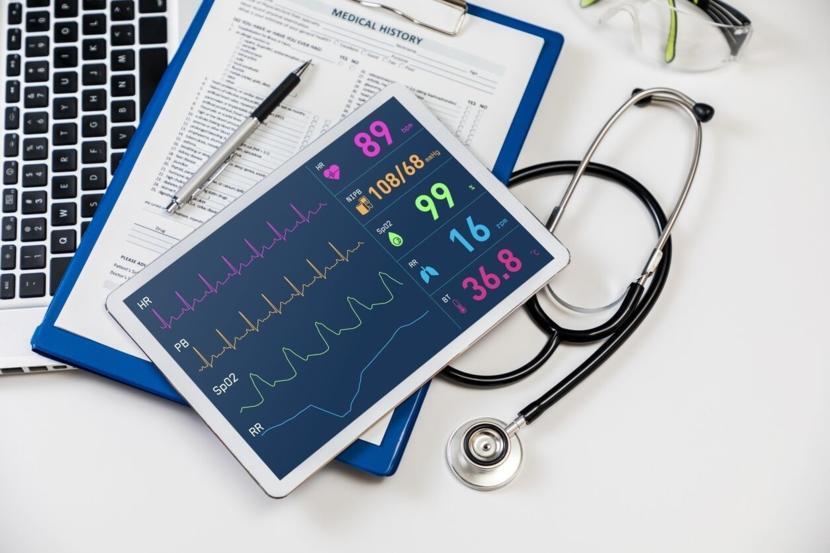EMR, EHR, and Practice Management Tools

Records are an essential part of medicine. There are two different forms of records but the purpose is essentially the same which is the benefit of the patient. As a physician you’re going to need a record in order to gather all the relevant data regarding a person to help you figure out the best plan for them. You’re also going to need it in order to keep track of how your patient is doing. By comparing new to old data you can tell if a person is getting better, worse, or if his or her condition is the same.
A record also has a legal purpose in that it can be used to justify your plan of action in case anything happens. It will also save you from the trouble of having to remember every single thing about every single patient which is impossible. It’s better to have something to go back to if needed. A patient can also use his or her record if they decide to switch between doctors. This also works if they’re going to and from specialists. For example, the tool you use to manage neurology medical billing could be the same one utilized by GPs. Of course it helps a physician to know everything possible about a patient and the best way to do so is by reading a record that goes back a very long time because a patient’s memory may not be very accurate and some details may be missed. There are two kinds of record keeping systems: EMR and EHR. The terms are used interchangeably but they are different things and have different uses.
An EMR is short for Electronic Medical Record. This record is strictly medical. They are basically scanned or digital copies of a patient’s chart. An EMR has all the data relevant to diagnosis and treatment of a patient at a practice. It’s kind of limited in this aspect because it’s focused on a single practice. The good thing is that as a physician you have digital copies of all the relevant clinical data regarding your patients from the moment they stepped into your office the very first time.
There are plenty of benefits to an EMR. First of all you get to keep a patient’s data over time and this makes tracking a patient’s progression much easier. If a patient’s labs are improving then you know they’re getting better and vice versa. This allows you to adequately assess a patient’s status and take steps to modify the course of treatment in order to achieve better results. If a patient’s getting better than you may simply keep them on the current regimen or find ways to maximize it. On the other hand if they’re getting worse then you’ll look for alternative solutions.
An EMR also helps you keep a record and schedule of when patients are due for checkups and screening. You might want to check up on your diabetic patient every once in a while to make sure they’re not developing any complications every once in a while and an EMR helps you do that. A patient with liver cirrhosis will need to regularly have an abdominal ultrasound and a measurement of his serum alpha fetoprotein so through the use of an EMR your office can set up appointments for checkups such as these.
These all help you achieve better outcomes for your patients. You have a clear view of how they’re doing and you can take steps to make things better for them. You also make sure they don’t miss on anything essential such as checkups and screenings through scheduling appointments at the right time. These features make an EMR much better than a paper record. An EHR, however; has much more to it.
An EHR is short for Electronic Health Record. This gives it a much broader spectrum than an EMR. A “medical” record is purely clinical. A “health” record relates to a person’s general condition this includes a person’s general well being which consists of the mind and soul rather than just the body.
An EHR has a much broader view of how the patient is doing. As opposed to an EMR it is not just limited to one practice, but can be shared among multiple healthcare providers. Other healthcare providers may include laboratories, other specialists, and hospitals. This means that the entire team taking care of the patient has access to it which will definitely lead to better care.
Basically a patient who comes to you for the first time and has an EHR will be much easier to deal with medically than one who doesn’t. An electronic health record will include all the clinical and health data related to the patient for a very long time. You will have access to previous healthcare visits, hospital admissions, and investigations. It can follow the patient around from one healthcare provider to the next with each physician adding to it. This means you don’t have to start from scratch with a patient but can build upon the knowledge discovered by previous clinicians. Patients can access their EHRs as well.
A patient admitted to the ER and is unconscious is in a very dire situation because diagnosing their condition may take time and the doctors in the ER have no idea what the patient is allergic to. If however they can access their EHR then they can find useful diagnostic information. For instance they might discover that this patient is diabetic which will definitely narrow down the diagnosis to a couple of things. The EHR will also inform them of any allergies the patient has so they can avoid them.
Through accessing their own EHRs patients can improve their health status as well. If a hypertensive patients logs in and reads their EHR and notices that their blood pressure measurements have improved since they started regularly taking their medication and quit smoking then that will serve as positive reinforcement and will encourage them to stay on the same track.
The notes added by a doctor in a hospital can also be beneficial as the patient is discharged and goes home. As the patient follows up with his or her doctor, the doctor can simply look at their EHR to read the notes from the hospital which can contain useful advice enabling them to manage the case better. This type of beneficial communication will extend throughout a person’s life as they visit different healthcare providers.
It’s not really fair to compare an EMR to an EHR since an EHR has so much more to offer. An EMR definitely has the edge over paper records. EMRs are easily kept and can be backed up as opposed to papers. An EMR also allows scheduling of screenings and checkups which make your life as a physician easier as well as the lives of your patients who can avoid complications of diseases thanks to these appointments. An EHR can do everything an EMR can do but is not limited to one practice. Sure it’s great to have all the clinical information about a patient from the first moment they stepped into your office, but why not have more?
An EHR gives you data about a patient’s entire medical and health history from the moment their health record started which may be at birth. Imagine knowing every treatment and investigation done for a person throughout their entire life. An EHR also lets you write e-prescriptions that can be accessed by a pharmacy so that you don’t have to write prescriptions anymore and risk them getting lost.
Electronic records should be mandatory for every practice because they can make the difference in a person’s life like the example of an unconscious person at the ER we mentioned. EHRs are recommended over EMRs because they benefit the entire team working together to help a patient and not just a single doctor or practice. They can also be accessed by the patients themselves which makes them feel more aware of their condition and that they’re active participants which will definitely improve their clinical outcome.











